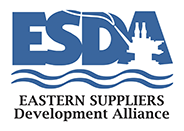News
Equip Fishermen to be First Response
Equip Fishermen to be First Response to Oil Spills:Union BARB SWEET The federal government is making a big mistake by not equipping fishermen as potential first responders to oil spills, says the head of the fisheries union.
Transcontinental Media
"It's bureaucratic gobbledygook," Fish, Food and Allied Workers Union (FFAW) president Earle McCurdy said.
For years, fishermen in Placentia Bay have been raising concerns about the risk of a spill in the bay.
The alarms were sounding long before the massive oil spill in the Gulf of Mexico drew shocking headlines.
A 1990 public review panel on marine safety and marine spills response capability concluded that foggy Placentia Bay, with its 365 islands and reefs, is the most likely place in Canada for a major oil spill.
The subject has also generated a stack of reports, the latest of which was released last month - the Assessment of Proposals Related to Oil Risk for the South Coast of Newfoundland.
The document - prepared by consultants for Transport Canada and the Canadian Coast Guard - is an item-by-item response to 25 proposals from the local community for changes to existing oil spill prevention measures.
It not only pertains to Placentia Bay, but the entire south coast of Newfoundland, from Cape St. Francis to Port aux Basques.
Among the proposals, the federal government rejected a suggestion that fishermen be trained as first responders to an oil spill.
Nor will the Coast Guard give financial support to fishermen and aquaculture operators to obtain first responder kits - equipment that could be used to initially contain spills.
McCurdy said fishermen are a valuable asset and should not be overlooked.
They wouldn't be able to tackle a catastrophic offshore spill such as that in the Gulf of Mexico, he said, but in smaller instances, they are ideal first responders.
"They are best able to respond to it quickly," he said, adding they know the habitats, the currents and are motivated because their livelihood is at stake.
"The risk is greatest among those who depend on the water for livelihood. Those are the people who are the most vulnerable," McCurdy said.
He said the government doesn't fully recognize the risk to the fishery, and figures it's sufficient to take a big risk and "say a few Hail Marys" rather than devise a concrete plan.
"It's not reasonable to expect the harvesters to take the brunt of all this and hope it all works out," McCurdy said.
He said he was dissatisfied with the flavour of debate in the provincial House of Assembly over the Orphan Basin this week.
Chevron began drilling an exploratory well in the Orphan Basin about 430 kilometres northeast of St. John's, and that well is a kilometre deeper underwater than the British Petroleum project in the Gulf of Mexico which has been spewing crude since an oil rig sank there in late April, killing 11 people.
Natural Resources Minister Kathy Dunderdale told the House of Assembly she has confidence in the current regulations governing the oil industry.
Later in the week, the province appointed master mariner Mark Turner to conduct an independent review of legislation, regulatory regimes, the capabilities and practices in place to prevent oil spills offshore and response plans to clean them up.












 Top of Page
Top of Page